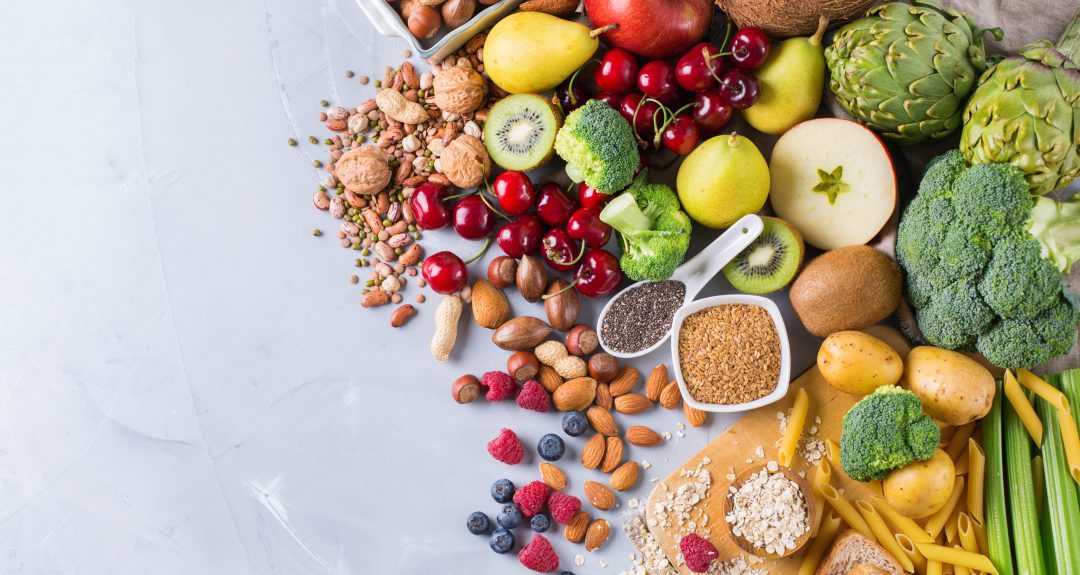Given the current climate, you may feel anxious and perhaps confused. In addition to washing your hands regularly and minimising exposure, there is a whole lot you can do to support and strengthen your immunity.
Our immune system involves an intricate and complex network of cells which can recognise and fend off invading pathogens, bacteria and viruses. Supporting its proper function is the most important thing we can do to help ourselves and it’s not as hard as you think! This knowledge will hopefully empower you to make informed decisions to protect yourselves and your loved ones.
Here are some simple nutrition and lifestyle tips to help you build a healthy and robust immune system.
Nutrition tips
Inflammation and oxidative damage are natural reactions in response to invasion by harmful bacteria or viruses. It is therefore extremely important to include a wide range of fruits and vegetables containing key vitamins, minerals and antioxidants to protect against potential cellular damage.
- Vitamin C is famous for its role in supporting immune function and also contains powerful antioxidants. Boost your intake through red and green peppers, kale, broccoli, citrus fruits, kiwi and green vegetables. You may also wish to consider a high-quality vitamin C supplement at the first sign of infection. Please speak to a qualified health professional for advice on dosage and good quality brands.
- Polyphenols are plant compounds, packed with antioxidants and known to promote immune function as well as improve resistance to infection. Boost your intake of dark coloured vegetables (e.g. beetroot, dark green leafy vegetables), berries/ blackcurrants, cocoa powder, dark chocolate, red onions, black beans, nuts and seeds.
- Zinc is often forgotten about! It is an important micronutrient needed for many processes in the body, including immune function and deficiency may increase your susceptibility to harmful bacteria and viruses. Include foods such as seafood, red meat, poultry, chickpeas, lentils or seeds (pumpkin/squash), which are also great sources of protein.
- Vitamin D plays a huge role in the regulation of our immune system. Given the lack of sunlight exposure during winter months, UK Government guidelines recommend that we should be taking a supplement (10μg) daily, from September to March1. Similarly, include vitamin D rich foods such as egg yolks, full fat dairy products, fortified foods and oily fish to ensure you are getting a small amount through your diet.
- Support your gut with fibre! 70% of your immune cells are located in the gut and our commensal bacteria play an important role in immune function and protecting us from harmful viruses. Therefore, consuming a rainbow of fruits and vegetables, nuts, seeds and whole-grains will provide a diverse range of nutrients and fibre to fuel our gut’s good gut bacteria. Fibre will also help to regulate bowel movements and keep you fuller for longer.
- Include foods such as ginger, garlic and turmeric for their anti-viral and immune modulating properties.
- Instead of bulk buying loo roll and pasta, stock your cupboard with nutritious and nourishing foods such as frozen fruits and vegetables, tinned fish, beans, pulses and packets of rice.
- Please don’t compromise on food groups. Immune cells rely on protein, which is vital for building and repairing body tissue. Try to include a rich source with every meal; meat, fish, poultry, whole-grains, tofu, legumes, nuts and seeds.
- If you’re looking for an easy recipe to try at home, give my immune booster or turmeric latte a go!
Lifestyle tips
Whilst diet plays a huge role in immune health, it’s really important not to overlook the impact our lifestyle can have on our physical and mental health.
Stress
You may be feeling overwhelmed with anxiety and fear, but please stress less and focus your mind on building resilience. Stress hormones such as adrenaline and cortisol can dampen our immune function, increasing susceptibility to invading pathogens.
- Identify your stressors and consider keeping a gratitude journal
- Download meditation apps or practice deep breathing exercises for 5-10 minutes each day (breathe in for 4 and out for 4)
- Me time: Find time each day to collect your thoughts and do something you enjoy – perhaps a cup of tea?
For more tips on managing stress, click here
Sleep
Sleep is the nutrition your brain needs, giving it the chance to recover, repair and boost immune function. Inadequate sleep may have a massive impact on our immune system’s ability to produce infection-fighting molecules (e.g. cytokines) and protect against invading pathogens.
- Aim for 8 hours of sleep per night
- Try to tuck into bed a little earlier than usual
- Avoid over stimulating activities 1 hour before bed e.g. watching the news, using your phone (switch it to aeroplane mode). Consider something more relaxing like reading a book or having a hot bath as part of your bedtime routine.
*****This blog is not intended or implied to be a substitute for seeking professional medical advice, treatment or diagnosis. Information provided here is general, and not intended to treat, diagnose, prevent or cure any disease or conditions. Please contact your GP or private health consultant, if you have any personal health concerns, or consult a registered nutritional therapist for personalised dietary and lifestyle advice and guidance.
References
• GOV.UK. (2016). PHE publishes new advice on vitamin D. [online] Available at: https://www.gov.uk/government/news/phe-publishes-new-advice-on-vitamin-d.

